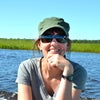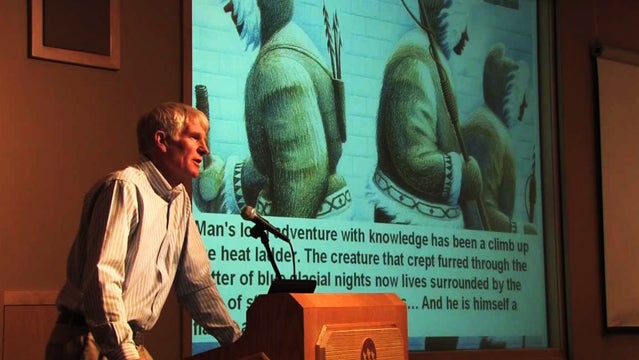James Randolph “Randy” Udall was found dead on Wednesday, July 3, in Wyoming’s Wind River range. The 61-year-old alternative-energy expert and lifelong outdoorsman had entered the Elkhart Park trailhead on June 20 for a solo backpacking trip and had been expected to return on June 26. He appears to have died of natural causes; an autopsy report is pending. He was reportedly found lying on his side, still and carrying his hiking poles.
Randy Udall belonged to a of environmentalists. He was the brother of U.S. Senator Mark Udall (D-CO), and cousin of U.S. Senator Tom Udall (D-NM), both well known for their pro-conservation politics. Randy’s father, U.S. Representative Mo Udall, championed the Alaska Lands Act, while his uncle, Stewart Udall, led the Interior Department through the 1960s, where he grew the National Park System and advanced a key environmental laws including the Clean Air Act and the Wilderness Act.
A Search and Rescue team found Udall’s body on an off-trail route he had intended to explore. A statement from the family said, “Randy left this earth doing what he loved most: hiking in his most favorite mountain range in the world.”
In a posted Thursday to the ClimateProgress blog, Auden Schendler, vice president of sustainability at Aspen Skiing Company and a close friend of Udall, called him a clean energy pioneer and an innovator who could bring together people from opposite sides of the energy spectrum. Plus, Randy Udall was a badass.
“… He chose me to join him on grueling and epic skis and hikes in the Sierras, the Wind Rivers, and the Colorado Rockies. He was one of the strongest humans on earth, both physically and mentally. As an Outward Bound instructor on winter courses, he was known to ski into camp in the dark, eat a stick of butter, dig a hole in the snow, and go to sleep.”
Udall founded the , a non-profit that develops energy efficiency projects throughout Colorado, and earned the moniker “Robin Hood of Aspen,” based on a program he developed in which homeowners are taxed if they install things like heated pools that push their energy consumption past a limit written into the building code. The money collected through the tax is invested in green energy projects.
More recently, he had been working as an independent energy analyst and helped broker a deal between Aspen Skiing Company, utility provider Holy Cross Energy and Oxbow energy company for a system that captures methane gas leaking from a coal mine and converts it to electricity.
During the half hour I spent interviewing Udall for a story on that methane project, it was clear he was not only deeply versed in our dizzyingly complex energy economy but could also quickly articulate why the U.S. needs much more than turbines and solar panels to combat climate change.
“All we hear about is carbon dioxide, but methane is carbon dioxide on steroids,” he said. “Here in the U.S. it’s wind and solar, but [capturing waste methane to convert it to energy] has become more common in Europe, because the Germans took a more sensible approach in deciding what it green.”
Udall was also a gifted writer and big-picture thinker, as is clear in —aka fracking—boom.
He is survived by three children and his wife Leslie Emerson, another former Outward Bound guide. Udall’s father-in-law, Richard Emerson, was a highly regarded mountaineer. As a , Emerson helped Jim Whittaker become the first American to reach the summit.
Even without his green pedigree, Udall’s merit as a pragmatic environmentalist, a protector of natural resources, and a lover of long, arduous journeys will stand on its own.


